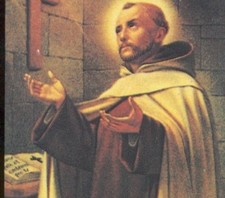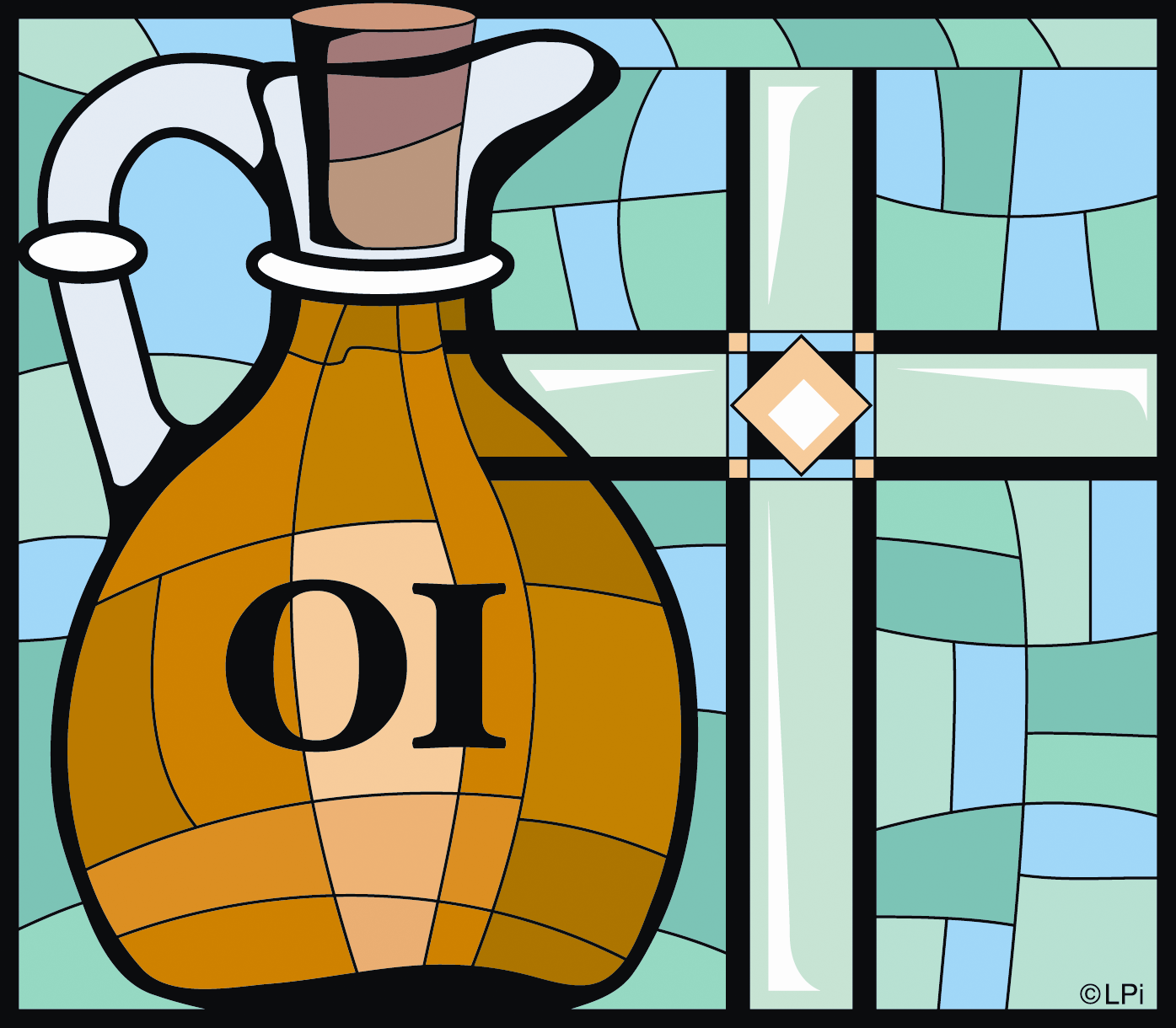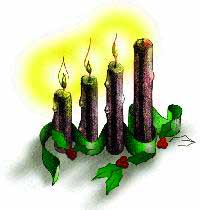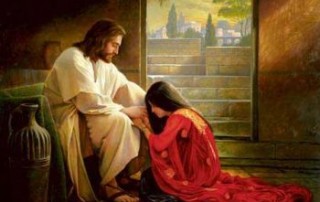Today’s Readings
Today’s readings and liturgy call us to rejoice. That’s the reason for the rose-colored vestments and the more joyful tone of today’s readings. This is called Gaudete Sunday: gaudete being Latin for “rejoice,” the first word of today’s introit or proper entrance antiphon which says: “Rejoice in the Lord always; again I say, rejoice. Indeed the Lord is near.” The Church takes that antiphon from the words of the second reading today.
And there is reason to rejoice. The prophet Zephaniah tells the people Israel that, even though their sins had displeased the LORD to the point that he gave them over to the hands of their enemies, he has relented in his judgment against them and will deliver them from their misfortune. Their deliverance is so complete that the LORD will even rejoice over them with gladness!
In his letter to the Philippians, Saint Paul calls us to rejoice too. The reason he calls for rejoicing is that “The Lord is near.” He was referring to Jesus’ return in glory, of course, which they thought would be relatively soon in those days. While he never saw that in his lifetime, we may. Or perhaps our children will, or their children. One thing we definitely know is that the Lord is near. He does not abandon us in our anxieties, in our frailty or our illness, but instead listens as we pray to him and make our petitions with thanksgiving. Our Lord is as near to us as our next quiet moment, our next embrace of someone we love, our next act of kindness. Rejoice indeed!
I think, though, that it can be hard to rejoice when we are suffering from illness or injury. Sometimes when we’re sick, it can even be hard to pray or find God in anything. A wise person once told me that you have to make sure that you’re praying when you’re well, because when you’re sick, it can be hard to pray. But it those times of illness or injury, that’s when you need to rely on God the most. If you have been praying when you’re well, then that relationship is going to be something you can lean on when you need healing.
Saint John the Baptist in today’s Gospel reading puts the precursor of the Church’s healing ministry into play. He traveled around proclaiming a baptism of repentance for the forgiveness of sins. Because sin is what truly makes us sick. If we have sin in our lives, then we have a broken relationship with God, and that doesn’t serve us well in our time of need. Jesus came to put a stop to that cycle of sin and death. When he healed the sick, he always said, “Your sins are forgiven.” It’s not that he missed the point or somehow didn’t get that the person was sick, not sinful, but more that he wants the healing to be a complete one: a healing from the inside out.
And that kind of healing is a good one for us to approach during this Holy Year of Mercy. During this year, we will have the opportunity to reflect on God’s mercy in very deliberate ways. We will have opportunities, as we always do, to practice the corporal and spiritual works of mercy: feeding the hungry, visiting the sick, forgiving offenses. But we’ll also be called to enter into mercy, through the sacraments of healing: Penance and Anointing of the Sick, which is what brings us here today.
Pope Francis, in the document that called for the Year of Mercy, spoke of Jesus as the face of the Father’s mercy, a truth that he says may as well sum up the Christian faith. Then he says that we need to contemplate God’s mercy constantly and in many ways. He writes:
It is a wellspring of joy, serenity, and peace. Our salvation depends on it. Mercy: the word reveals the very mystery of the Most Holy Trinity. Mercy: the ultimate and supreme act by which God comes to meet us. Mercy: the fundamental law that dwells in the heart of every person who looks sincerely into the eyes of his brothers and sisters on the path of life. Mercy: the bridge that connects God and man, opening our hearts to the hope of being loved forever despite our sinfulness. (Misericordie Vultus, 2.)
And so in our faith, we gather today to express the prayers of our hearts, asking for God’s mercy, praying prayers, perhaps, that we haven’t been able to utter for some reason or another. We gather today to place ourselves in God’s hands and experience his healing, in whatever way is best for us. The Apostle Saint James tells us that we should turn to the Church in time of illness, calling on the priests to anoint the sick in the name of the Lord, knowing that God desires healing, and that the prayer of faith will save the sick and raise them up, forgiving them their sins.
The Church has the Sacrament of Anointing of the Sick because of who Jesus was and because of what he came to do among us. Jesus was that suffering servant from the book of Isaiah’s prophecy, the One who took on our illnesses and bore our infirmities. He was spurned and avoided, oppressed and condemned, all the while giving his life as an offering for sin, justifying many, and bearing their guilt. God always knew the frailty of human flesh, but when he decided to come to his people, he did not avoid that frailty; instead he took it on and assumed all of its effects. This is why we treat the sick with dignity: our frailty was good enough for our God, and we know that the sick are very close to our Lord in their suffering, because he suffered too.
And so today we rejoice because our Lord is near. We light that third, rose-colored candle on our Advent wreath and we see there’s not many candles left until the feast of the reason for our rejoicing. We rejoice, too, that we can come to him for help and sustenance and companionship on the journey to healing. We look forward to celebrating the Incarnation, perhaps the greatest and best of the mysteries of faith. That God himself, who is higher than the heavens and greater than all the stars of the universe, would humble himself to be born among us, robing himself with our frail flesh, in order to save us from our sins, heal our brokenness, and make his home among us for all eternity – that is a mystery so great it cannot fail to cause us to rejoice! Indeed that very presence of God gives hope even in our most difficult moments – THE LORD IS NEAR!
These final days of Advent call us to prepare more intensely for the Lord’s birth. They call us to clamor for his Incarnation, waiting with hope and expectation in a dark and scary world. These days call us to be people of hope, courageously rejoicing that the Lord is near! Come, Lord Jesus! Come quickly and do not delay!









You must be logged in to post a comment.